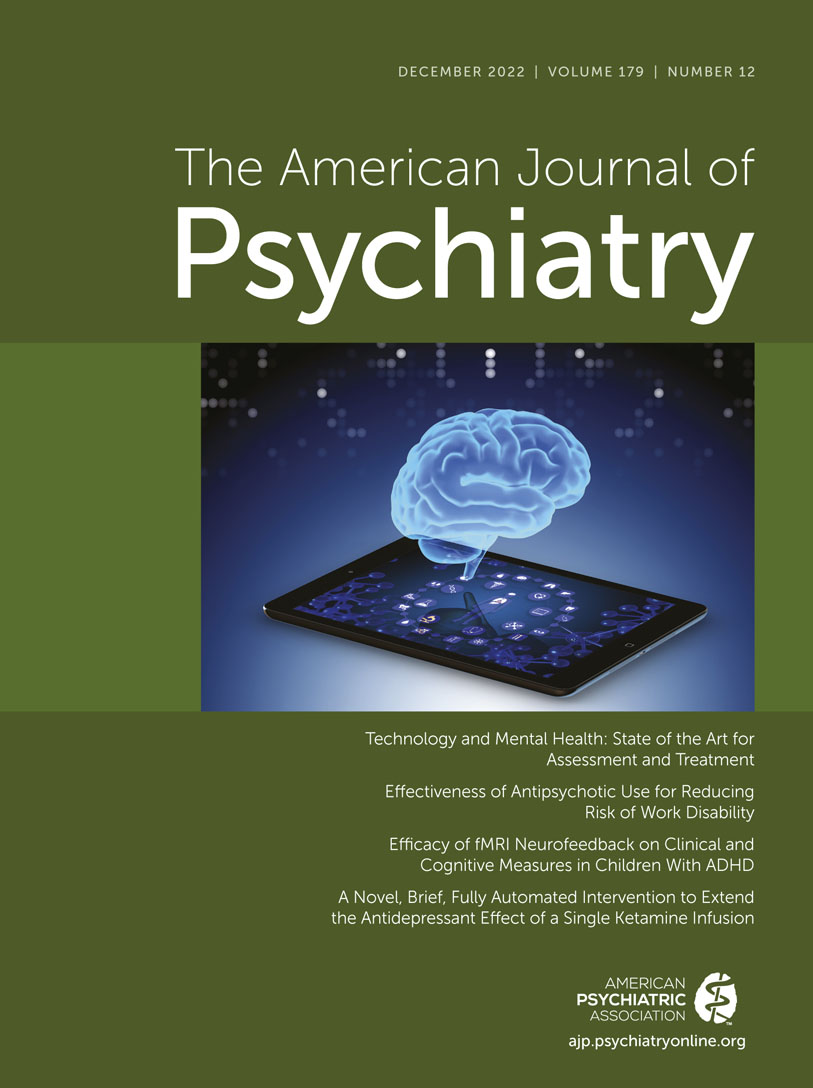Double-Blind, Sham-Controlled Randomized Trial Testing the Efficacy of fMRI Neurofeedback on Clinical and Cognitive Measures in Children With ADHD
Abstract
Objective:
Functional MRI neurofeedback (fMRI-NF) could potentially be a novel, safe nonpharmacological treatment for attention deficit hyperactivity disorder (ADHD). A proof-of-concept randomized controlled trial of fMRI-NF of the right inferior frontal cortex (rIFC), compared to an active control condition, showed promising improvement of ADHD symptoms (albeit in both groups) and in brain function. However, comparison with a placebo condition in a larger trial is required to test efficacy.
Methods:
This double-blind, sham-controlled randomized controlled trial tested the effectiveness and efficacy of fMRI-NF of the rIFC on symptoms and executive functions in 88 boys with ADHD (44 each in the active and sham arms). To investigate treatment-related changes, groups were compared at the posttreatment and 6-month follow-up assessments, controlling for baseline scores, age, and medication status. The primary outcome measure was posttreatment score on the ADHD Rating Scale (ADHD-RS).
Results:
No significant group differences were found on the ADHD-RS. Both groups showed similar decreases in other clinical and cognitive measures, except for a significantly greater decrease in irritability and improvement in motor inhibition in sham relative to active fMRI-NF at the posttreatment assessment, covarying for baseline. There were no significant side effects or adverse events. The active relative to the sham fMRI-NF group showed enhanced activation in rIFC and other frontal and temporo-occipital-cerebellar self-regulation areas. However, there was no progressive rIFC upregulation, correlation with ADHD-RS scores, or transfer of learning.
Conclusions:
Contrary to the hypothesis, the study findings do not suggest that fMRI-NF of the rIFC is effective in improving clinical symptoms or cognition in boys with ADHD.



